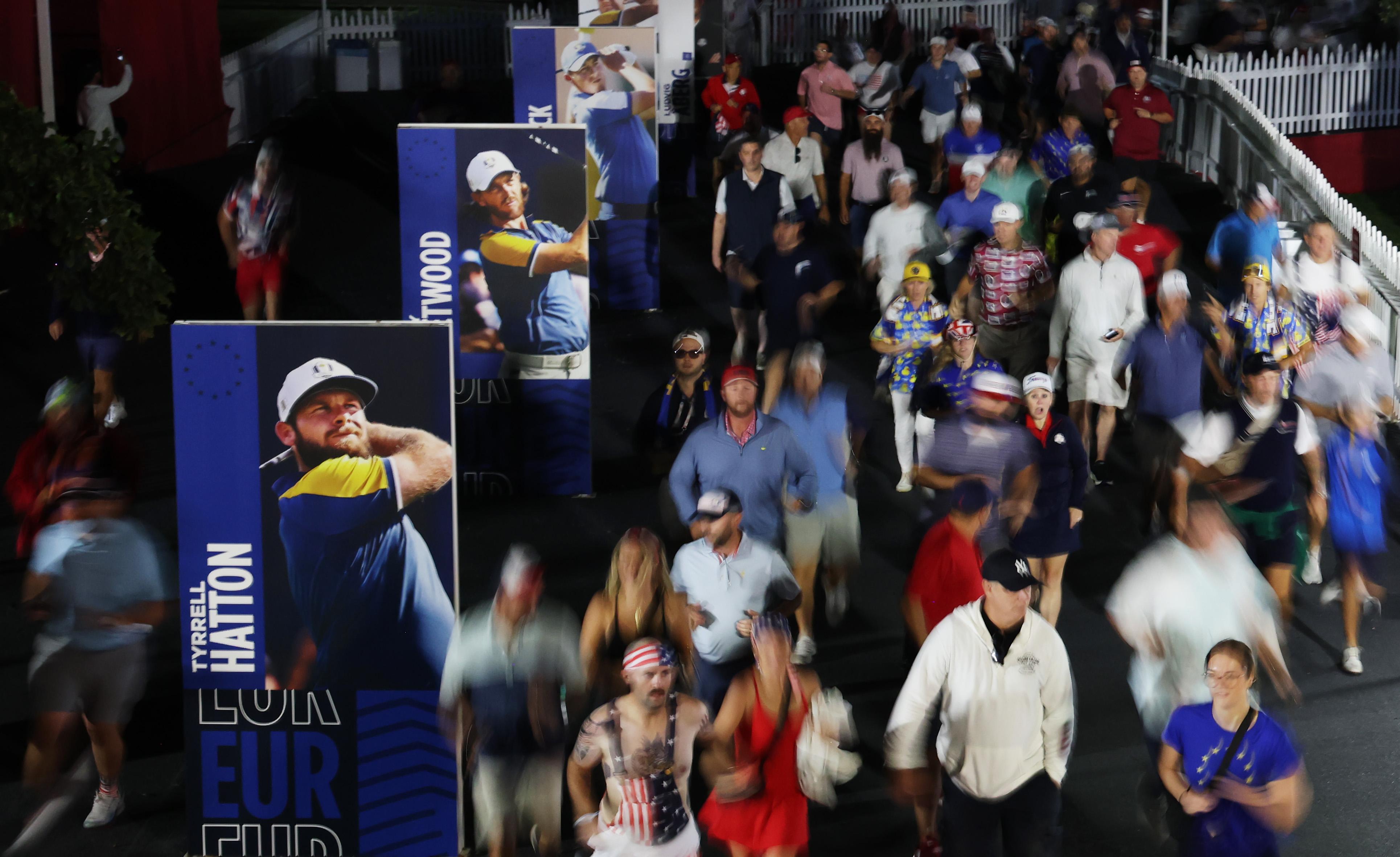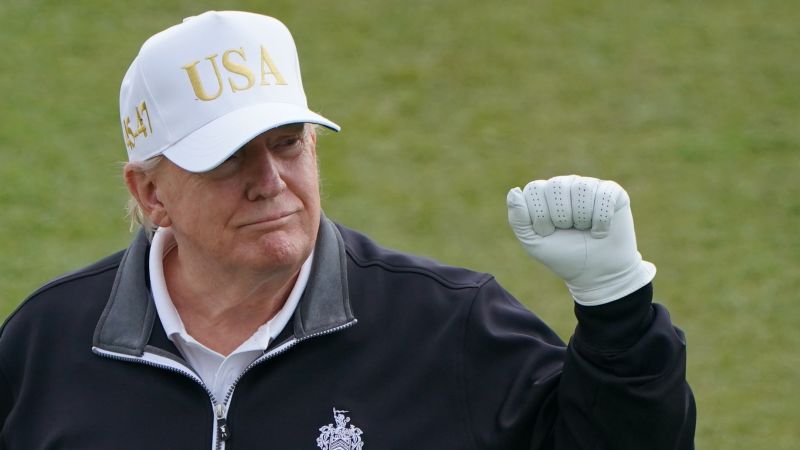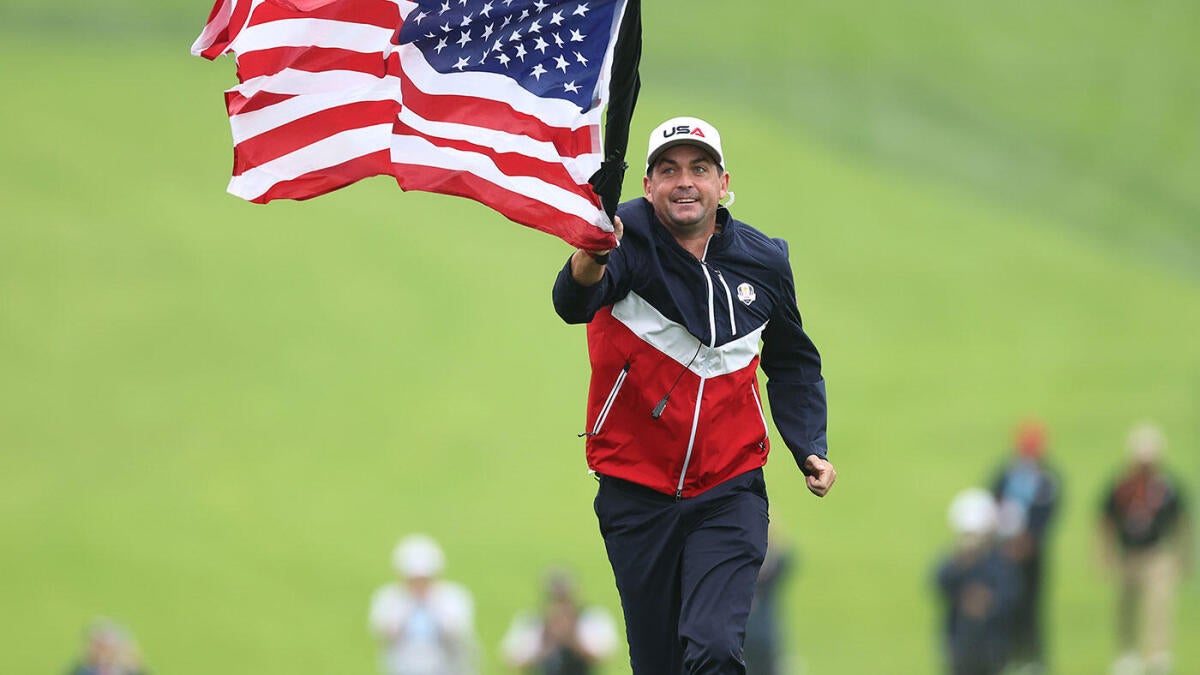What are foursomes, who is playing, and why on earth is that rather inebriated spectator cosplaying as George Washington? The Ryder Cup can be a dizzying beast to wrap your head around if you’re not a seasoned golf enjoyer.
In such headspinning circumstances, it’s helpful to start with the basics. So without further ado, here’s a drive through the format so you can get up to speed before tee off at New York’s Bethpage Black Golf Course on Friday.
Launched in 1927, the Ryder Cup is a biennial tournament that pits the best golfers from the United States and Europe against each other in a battle for bragging rights and a shiny gold trophy.
That wasn’t always the setup: for the first 50 years, it was strictly Team USA versus Team Great Britain (renamed Great Britain & Ireland between 1973 and 1977). The problem was, it wasn’t much of a spectacle, with the US winning all but four of the first 22 tournaments.
To even the odds, the Great Britain and Ireland selection pool was expanded to include the wider continent from 1979. It worked: Team Europe have won 12 of the 22 tournaments held since, losing nine times and tying once (more on that shortly).
Hosting privileges rotate each time, with Bethpage Black in Farmingdale, New York, the arena for the 45th edition of the tournament after Rome’s Marco Simone Golf Club staged the 2023 contest.
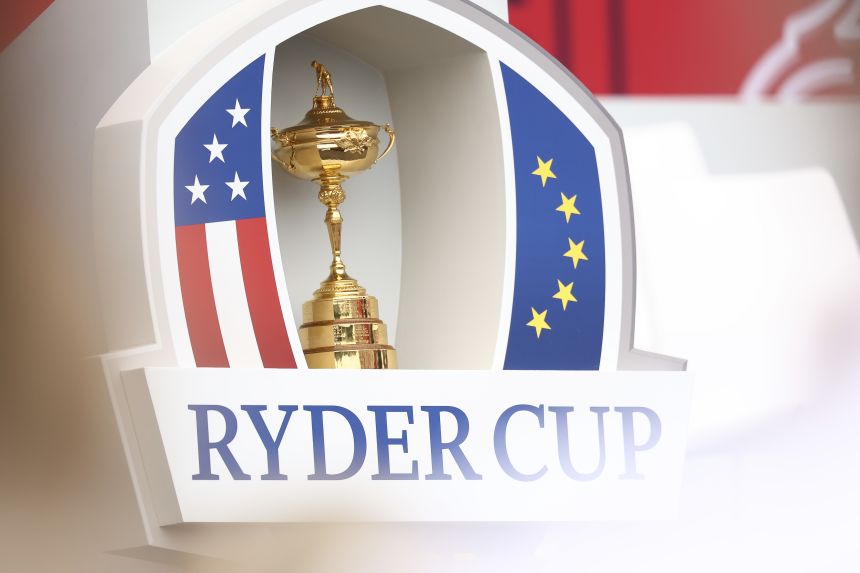
Winning away is no easy feat. Team USA’s defeat in Italy extended their winless run across the pond to a minimum of 34 years, while Team Europe have not tasted victory on American soil since a comeback for the ages in Illinois back in 2012.
Like most team sports, the side with the most points at the end wins. Sounds straightforward enough, but Ryder Cup scoring is a little more nuanced.
While regular season events like The Masters run according to stroke play – whereby the player who navigates the course in the fewest number of ball hits triumphs – the Ryder Cup is a three-day match play competition.
That means players are competing to “win” individual holes, rather than shoot the lowest overall score across the course. Win more holes than your opponent across an 18-hole match and you score a point for your team. If the match ends in a tie, each team receives half a point.
With 28 total points up for grabs – eight apiece for foursomes and fourballs sessions across the first two days, and 12 for each Sunday singles matchup – the first team to nudge past the 14-point mark is crowned champion.
In the rare event of an overall tie, the trophy is retained by the previous champion. Only twice in Ryder Cup history has this occurred, with the US and Europe each retaining their crown in 1969 and 1989 respectively.

Friday and Saturday morning will be the time for foursomes, a format in which teams of two take alternate shots of the same ball until each hole is complete.
For example, Scottie Scheffler could tee off, but his American playing partner would be the one playing from wherever the world No. 1’s drive landed. Teammates alternate hitting tee shots, so Scheffler’s partner would begin the next hole.
Whichever pair finds the cup in the fewest strokes wins that hole, with the hole tied if both teams manage it in the same number of strokes. The winner of the most holes clinches the match and a point for the overall scoreboard, with a tied match rewarding each side with half a point.
You may see results listed like “won 4&3,” which would – in that case – mean a pair was four holes up with three holes to play and, as a result, could not be caught.
Scheffler and Brooks Koepka made unwanted history in Italy two years ago when they were obliterated 9&7 by Scandinavian duo Viktor Hovland and Ludvig Aberg, the largest margin of victory for any 18-hole match in Ryder Cup history.

The first two afternoons belong to the fourballs.
Again, this is played in pairs and scored like foursomes, but this time players strictly hit their own ball as opposed to alternating shots: four balls are in play at the same time. The player with the lowest score wins that hole for his team.
It is up to the home captain to decide which format will be played first, with new US lead Keegan Bradley opting to kick off proceedings with foursomes for the third successive tournament.
Captains also have the critical power to choose which players to pair together, an intricate dance of team chemistry and opposition matchup that can make or break a Ryder Cup bid.
European captain Luke Donald, retaining the armband after leading his side to triumph in Rome, has an advantage in that sense, with just one change to his champion roster: Rasmus Hojgaard in for his twin Nicolai.
By contrast, only six players from that defeated Team USA lineup return: Scheffler, Patrick Cantlay, Xander Schauffele, Collin Morikawa, Sam Burns and Justin Thomas.
Sunday is dedicated solely to the singles matches, 12 tense shootouts contested by one member of each team.
Usual match play rules apply, with the player who scores lowest on each hole taking that hole in the race to secure crucial late points.
Expect drama aplenty, with Sundays staging many of the greatest moments in Ryder Cup history, from The Battle of Brookline in 1999 to The Miracle of Medinah in 2012.
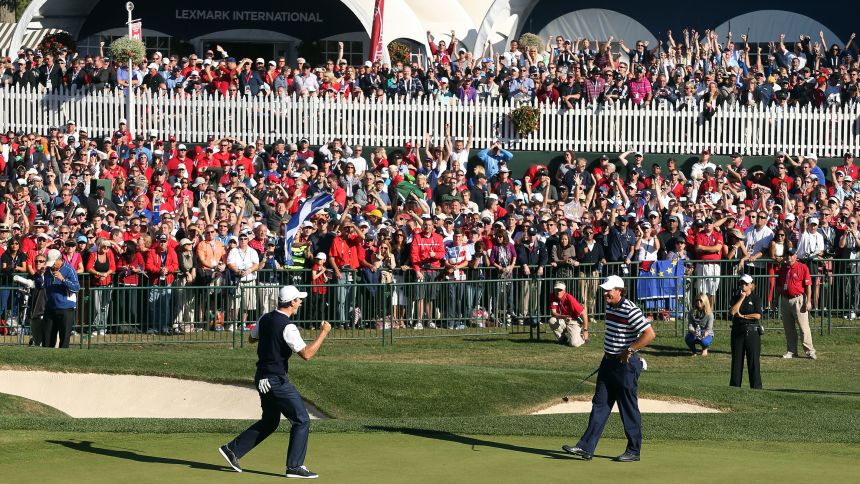
It is worth noting that, in match play, players have the option to “concede” a hole. This almost exclusively happens around putts, typically very short ones, whereby a player can concede to his opponent and allow them to pick up the ball and win the hole.
The most legendary such instance occurred in 1969, when Jack Nicklaus conceded a short putt to Tony Jacklin, confirming the first tie in Ryder Cup history. “The Concession” has since been heralded as a display of supreme sportsmanship, though US captain Sam Snead was not best pleased.
“When it happened, all the boys thought it was ridiculous to give him that putt,” Snead would later remark. “We went over there to win, not to be good ol’ boys.”
Six players qualify automatically for each team based on ranking points accumulated through seasonal performances, with wins at the four majors giving out the most points.
The remaining six slots on either side are left to captain’s picks, a big talking point in the run-up to every Ryder Cup.
Team USA
Captain: Keegan Bradley
Automatic qualifiers: Scottie Scheffler, JJ Spaun, Xander Schauffele, Russell Henley, Harris English, Bryson DeChambeau
Captain’s pick: Justin Thomas, Collin Morikawa, Ben Griffin, Cameron Young, Patrick Cantlay, Sam Burns
Team Europe
Captain: Luke Donald
Automatic qualifiers: Rory McIlroy (Northern Ireland), Robert MacIntyre (Scotland), Tommy Fleetwood (England), Justin Rose (England), Rasmus Hojgaard (Denmark), Tyrrell Hatton (England)
Captain’s picks: Shane Lowry (Ireland), Jon Rahm (Spain), Sepp Straka (Austrian), Viktor Hovland (Norway), Ludvig Aberg (Sweden), Matt Fitzpatrick (England)
Look away now, American readers.
A spirited Sunday fightback proved too little too late as Team USA fell to a 16.5 – 11.5 defeat in Italy, the hosts tearing out of the blocks to avenge a record-breaking 19-9 defeat at Whistling Straits in 2021.
American captain Zach Johnson had faced criticism before a ball had even been struck at Marco Simone, with none of his six captain’s picks ultimately registering a winning record in Rome.
Some Saturday evening drama did seem to spark an American response, with McIlroy having been incensed by the celebrations of US caddie Joe LaCava following a key putt for Cantlay.
It lead to an angry confrontation in the course parking lot and, although resolved over text, provides a juicy subplot heading into the next chapter of a storied rivalry this week.
